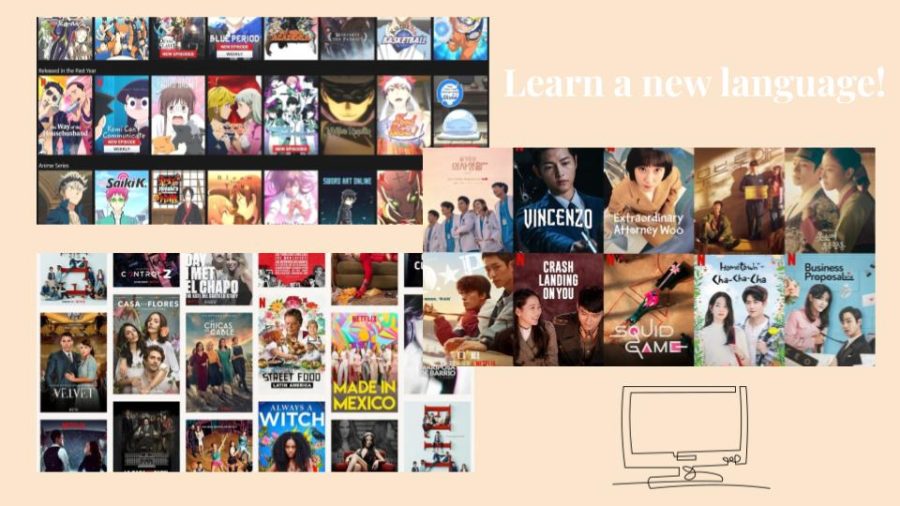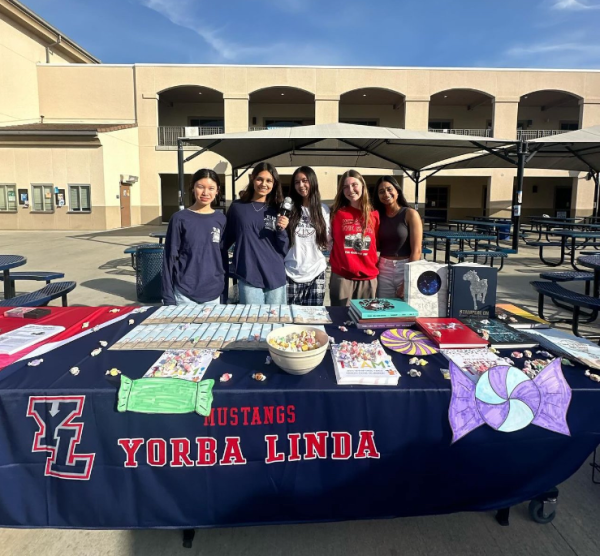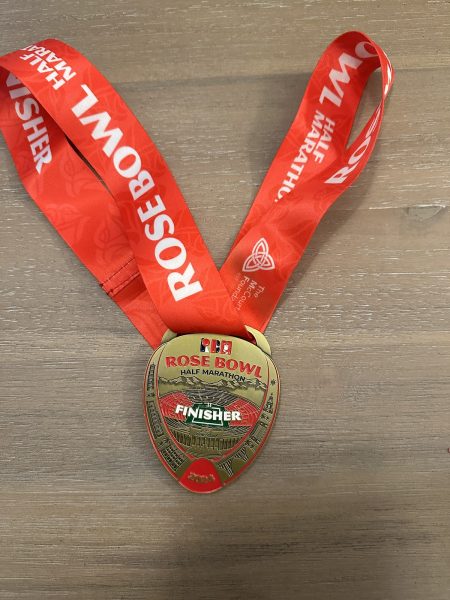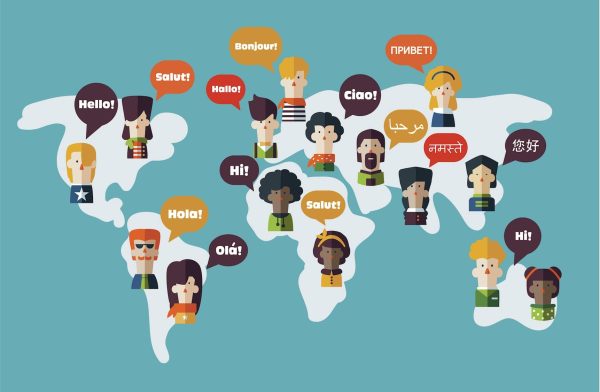Binge Your Way to Language Fluency
Looking to enhance your language skills? Try foreign TV shows!
April 4, 2023
The United States is one of the most prominent multicultural hubs, nicknamed as the “melting pot” for its uniquely diverse population. Especially with the rise of foreign pop culture trailblazers such as Korean dramas and anime in recent years, many people are more eager to learn foreign languages than ever. While popular learning methods often involve self-studying through the internet, apps like Duolingo, or taking language classes, there is a significantly more fun and efficient way to enhance your language-learning process: consuming foreign media. From TV shows to music, there is a vast amount of benefits in immersing yourself in whatever language you wish to learn.
It is a natural, entertaining way to see and hear language in an authentic way. It also allows you to learn about the culture and events in the various countries of the target language [you are watching].
— Profe Wong (staff)
Primarily, consuming foreign media greatly helps “boost your conversational skills” (blog.rosettastone.com). Forms of visual media—like TV shows—showcase slang, cultural expressions, vocabulary, native dialects, and different accents. Profe Wong (staff)—one of YLHS’ Spanish teachers—comments, “it is a natural, entertaining way to see and hear language in an authentic way.” For example, Spanish series like “Extr@”—which is used by some of YLHS’ very own Spanish classes—depict the Castilian Spanish pronunciation of words that would have an “s”-sound in Mexican Spanish with a “th”-sound instead. Korean and Japanese series also integrate different native dialects and accents, often through characters originating from the countryside. Some of the most popular dialects and accents include those of South Korea’s Busan and Daegu, and Japan’s Kansai and Osaka. Along with absorbing the respective language you are learning overall, the authentic aspects of foreign shows are very useful in learning how to speak more naturally and pick up cultural nuances or mannerisms. This is not to say that you should exactly imitate the boisterous, outspoken diction the comic relief character of a Korean drama employs or a stereotypical anime girl’s cutesy, exaggerated, and childlike manner of speech, but many examples of more realistic ways of speaking can be put into good practice. Furthermore, TV shows keep one more engaged than a standard textbook, increase motivation, and teach “new vocabulary through context, not just repetition” (blog.rosettastone.com). After all, most would rather binge-watch their favorite television series than sit down and read for half an hour. In this case, language learners can kill two birds with one stone.
To maximize efficiency in the learning process, it is recommended to watch with subtitles—visual learning can help words stick better to your brain and clarify whatever you may not understand. As one advances in their language proficiency, they should eventually “[shed] subtitles entirely” to challenge themself and simulate real-world learning (blog.rosettastone.com). If you are aiming to achieve literacy as well, using subtitles in the language being learned is another great way to challenge yourself.
Watching TV shows allows viewers to adjust their learning level to best fit their needs; certain genres are also better-suited for different levels of ability. Beginners can start with kid shows, which are lighter-paced and contain more basic sentence structures that can be easily followed. More advanced learners can try their hand at fantasy or thrillers, which utilize more complex vocabulary and story plots that require a higher level of comprehension ability. One can also pause, replay, and slow down at their convenience, which assists absorption and retention.
Overall, TV shows are an entertaining and effective way to learn foreign languages. They can transform a fun pastime into a productive learning session and foster greater appreciation for other cultures and tongues.





















